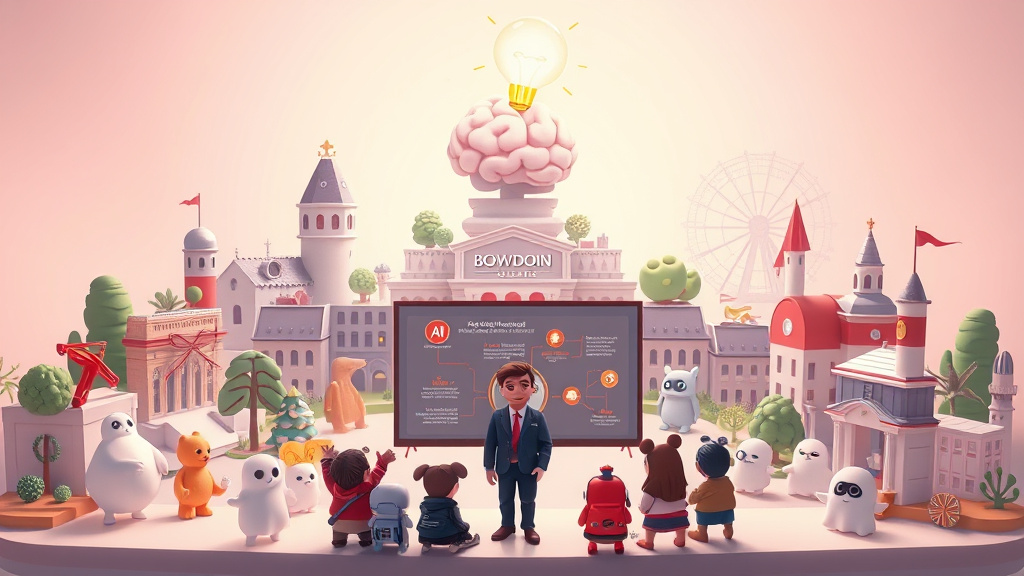The world of technology is rapidly changing with the increasing prevalence of artificial intelligence. AI is transforming various industries and aspects of life, from business and trade jobs to the arts. A significant donation to Bowdoin College aims to study the implications of AI on humanity.
Netflix Co-Founder's Donation to Bowdoin College
Reed Hastings, co-founder of Netflix, has donated $50 million to his alma mater, Bowdoin College, to create an initiative for artificial intelligence and humanity. The gift is the largest in the college's history and will be used to hire new faculty members, support current faculty, and launch workshops and symposia about the uses of AI. Hastings' donation seeks to advance the college's mission of cultivating wisdom for the common good by deepening its engagement with AI. The initiative will empower students and faculty to critically examine, thoughtfully utilize, and ethically shape AI's trajectory.
Sabotaging AI Strategies
New data reveals that 41% of Gen Z workers are sabotaging their employer's AI strategy. The main reasons for this include fear that AI will diminish their value, creativity, or job security, as well as concerns about AI being biased and unethical. To address these concerns, companies need to get serious about their AI strategy, improve the quality of AI tools, enhance the change management process, address ethical concerns, and provide necessary training and support.
Impact of AI on Patentability
Artificial intelligence is revolutionizing patent law, and its impact will be felt in determining whether human inventors are entitled to patents. As AI capabilities grow, fewer inventions may be patentable, and patents may be granted for advances that would occur in the ordinary course without real innovation. AI may also lead to stronger patents for fundamentally new technologies by enabling others to rapidly experiment with new discoveries.
AI in Various Fields
AI is changing careers in various fields, from trade jobs to the arts. While some remain skeptical about AI's long-term effects on jobs, experts agree that this technology is here to stay and will continue to evolve. AI can improve safety and efficiency in trades, and workers will still need to grow their skills, not only in hands-on tasks but also in technology.
Release of AlexNet Source Code
The source code for AlexNet, the convolutional neural network that transformed the AI field in 2012, has been released as open-source software. AlexNet represented a significant departure from traditional AI approaches and proved that deep learning could achieve things conventional AI techniques could not. The release of the code provides AI enthusiasts and researchers with a glimpse into a key moment of computing history.
Use of AI by Software Engineers
Software engineers are using AI in various ways, from automating repetitive coding tasks to generating code. While some programmers use AI every day, others are skeptical about its benefits. A survey of software engineers revealed that most dismiss full automation as a pipe dream and see AI as a force multiplier, not a job killer.
Key Takeaways
- AI is transforming various industries and aspects of life.
- A significant donation to Bowdoin College aims to study the implications of AI on humanity.
- New data reveals that 41% of Gen Z workers are sabotaging their employer's AI strategy.
- AI is revolutionizing patent law and will impact determining whether human inventors are entitled to patents.
- AI is changing careers in various fields, from trade jobs to the arts.
- The source code for AlexNet has been released as open-source software.
- Software engineers are using AI in various ways, from automating repetitive coding tasks to generating code.
Sources
- Netflix’s Hastings Gives $50 Million to Bowdoin for AI Program
- Netflix co-founder gives Bowdoin College $50 million for "ethical" AI research
- Netflix Co-Founder Reed Hastings Gives $50M To Bowdoin College For AI Initiative
- Netflix's Reed Hastings Donates $50 Million to Bowdoin College for 'AI and Humanity' Program
- Bowdoin gets largest gift in the college's history from Netflix co-founder
- New Data: 41% Of Gen Z Workers Are Sabotaging Their Employer’s AI Strategy
- How artificial intelligence will naturally affect patentability
- Is AI coming for your job? Artificial intelligence is changing careers in various fields
- You can now download the source code that sparked the AI boom
- How Software Engineers Actually Use AI
